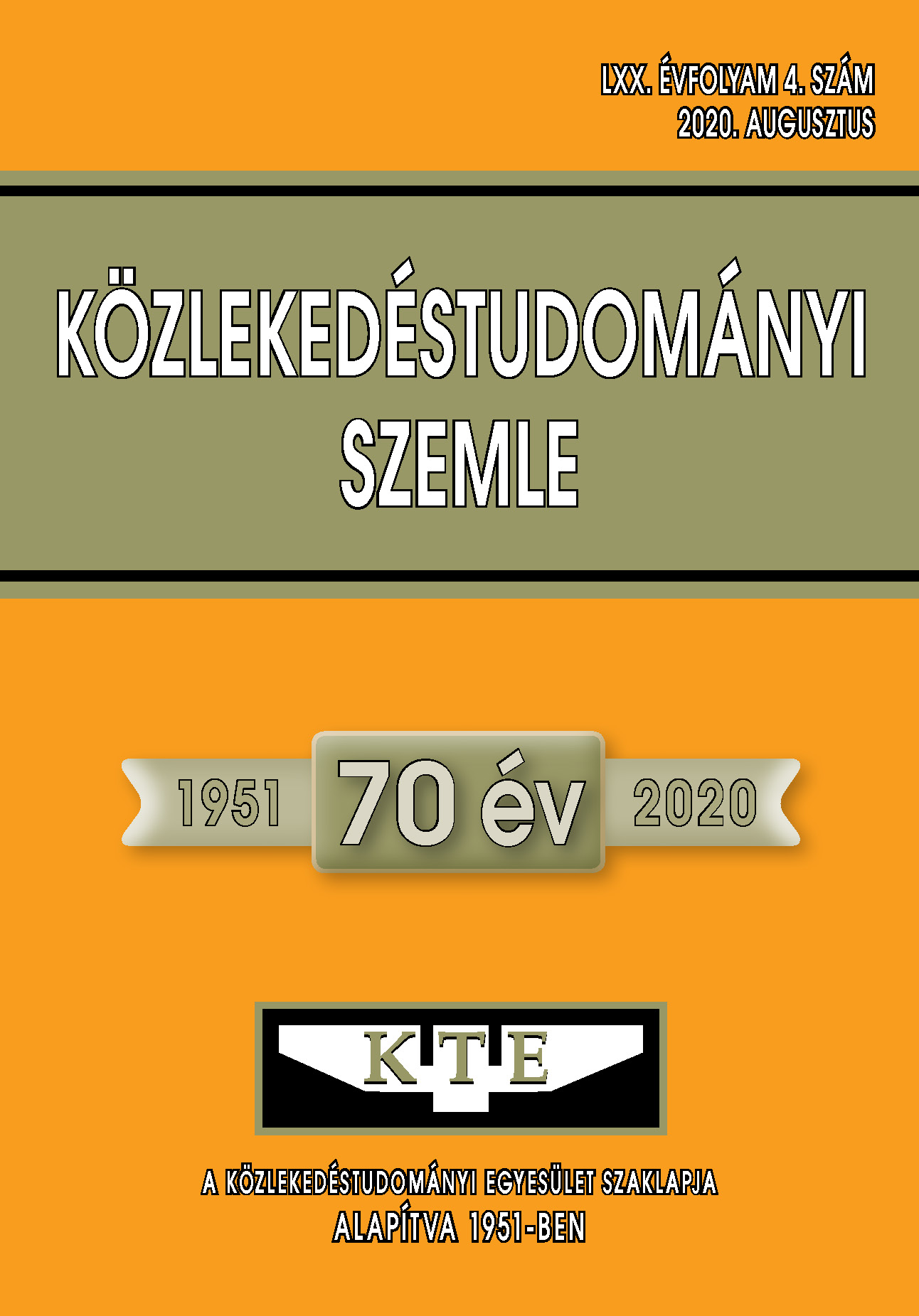Use of alternative fuels in shipping and fuel consumption calculation methods
Abstract
Just as in the automotive industry, electric, gas and hybrid cars, various alternative propulsion systems have emerged in the shipping industry in recent decades to replace and modernize conventional diesel systems. In the shipping industry, it has only been in the last few decades that more propulsion systems have been introduced, either in new ships or to replace the traditional system. The reasons are the increasingly stringent environmental regulations and reduction of operating costs, much of which is fuel cost. Knowledge
of fuel consumption data (measurement, calculation, estimation) is therefore very important for finding suitable alternative fuels for each type of ship. In this article, the authors would like to introduce the
features of the most feasible solutions and some of the methods for calculating fuel consumption for conventional diesel engines.
References
ZÖLDY MÁTÉ: Alternatív tüzelőanyagok, alternatív járműhajtások, BME 2005
OCÉANE BALLAND: LNG – A costefficient fuel option?, Maritime 2014, https://www.sjofart.ax/sites/www.sjofart.ax/files/attachments/page/oceaneballand2014.pdf
MARTIAL CLAUDPIERRE: Energy efficiency optimisation, Green Shipping Summit, Genova 2013
DR. SIMONGÁTI GY., HARGITAI L. CS.: Hajógépek, BME 2012
https://index.hu/tech/2017/12/06/szenet_szallit_majd_az_elso_elektromos_teherhajo/
https://index.hu/tech/2018/01/26/tesla_uszaly_teherhajo_elektromos_hollandia/
BRAM KRUYT: Eco2 inland vessel projekt, LNG Konferenz, Leer 2013
KAMALJIT MOIRANGTHEM: Alternative Fuels for Marine and Inland Waterways, ISBN 978-92-79-56957-9 (PDF), 2016
BUDIK GYÖRGY: Alternatív motorhajtóanyagok alkalmazása belsőégésű motorban, BME 2011 PhD dolgozat, https://repozitorium.omikk.bme.hu/handle/10890/1026
Hydrogen Fuel Cell Engines and Related Technologies, College of the Desert, Palm Desert, CA, USA, 2001., https://www.energy.gov/sites/prod/files/2014/03/f9/fcm00r0.pdf
ZHENYING WU: Comparison of Fuel Consumption on A Hybrid Marine Power Plant with Low- Power versus High-Power Engines, Norwegian University of Science and Technology 2017
Jacob K. Keller: A Cost Effective Method tolereate Accurate Engine Performance Maps & Updating the Nebraska Pumping Plant Performance Criteria, University of Nebrask 2014
ALFREDAS RIMKUS, JONAS MATIJOŠIUS, MARIJONAS BOGDEVIČIUS, ÁKOS BERECZKY, ÁDÁM TÖRÖK: An investigation of the efficiency of using O2 and H2 (hydrooxile gas -HHO) gas additives in a ciengine operating on diesel fuel and biodiesel ENERGY 152: pp. 640-651. 2018. DOI: http://doi.org/gdnhsb
MÁTÉ ZÖLDY: Investigation of Correlation Between Diesel Fuel Cold Operability and Standardized Cold Flow Properties", Periodica Polytechnica Transportation Engineering. 2019 DOI: http://doi.org/d2mq
Articles published electronically are open access (OJS), freely available online and can be downloaded. Authors of articles are not charged any publication or publishing costs (APC). Users have the right to read, download, copy, print, and search the articles, or share the full text with a link.
Authors must declare that their submission has not been previously published in another journal, that financial support has been acknowledged, and that the list of references is complete and accurate, including specification of URLs and DOIs (if available). When submitting a draft article, each author approves the submitted version. Authors guarantee that the article is their original work. Authors are required to participate in the peer review process, follow the advice of reviewers, meet the prescribed deadlines, and, if any, withdraw the submission or correct errors.
All submitted articles are subject to peer review, where the editors request an independent evaluation from at least one expert, ensuring that the reviewer(s) have no conflicts of interest with the authors. The final decision is made by the Editor-in-Chief, who takes into account the evaluations and the suggestions of the editors. The editors and reviewers treat the submission confidentially.
The publisher and editors are committed to maintaining high ethical standards and to preventing publications that involve research misconduct. They follow the COPE guidelines on such ethical issues.
The authors retain copyright and grant the journal the right of first publication under the Creative Commons License (https://creativecommons.org/licenses/by-nc-nd/4.0), which allows others to share the work, while acknowledging the authorship of the work and the first publication in the journal.
The journal archives all published articles, and the journal's owner, the Hungarian Society of Transportation Sciences, will continue to operate the database even if the journal ceases to be published.















